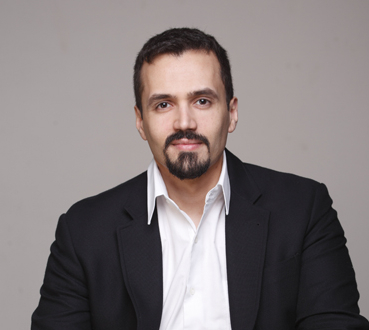
(Photo from Wikipedia)
The new US ambassador to Egypt arrived at Cairo International Airport Thursday to take up his country’s top diplomatic role in Egypt after a period of mixed relations between the two countries.
Robert Stephen Beecroft was appointed by President Barack Obama in June and has been awaiting government clearance since.
Beecroft is an experienced diplomat in the Middle East, having served in the embassies of Syria and Saudi Arabia. More recently, he served as US ambassador to Jordan from 2008 until 2011, and subsequently ambassador to Iraq. He holds a Juris Doctor of Law from University of California, Berkeley.
On the same day as Beecroft’s arrival, Egyptian president Abdel Fattah Al-Sisi and US president Barack Obama covered various issues of mutual concern in a telephone conversation. According to statements from both countries, they discussed cooperation in counterterrorism and regional security efforts, including military and intelligence relations.
President Obama expressed his condolences to the Egyptian people for the recent rise in terrorist attacks in the country. Al-Sisi asserted Egypt’s “full commitment to completing the democratic transition and establishing a modern nation that respects rights and freedoms”.
According to the US readout of the conversation, Obama also “expressed concern about mass trials, the status of NGOs, and the continued imprisonment of journalists and peaceful activists in Egypt”. No such references were included in the Egyptian summary of the conversation.
The exchange came less than a week after Egyptian border authorities denied entry to a visiting US scholar arriving to give a talk to the Egyptian Council of Foreign Affairs. It was a move which the White House said “sends exactly the wrong signal to the international community”.
Last week, the US Congress approved a renewal of the annual $1.3bn military and economic aid to Egypt, as part of the state spending budget for the coming year. The aid is a vital asset to Egyptian military spending, though before the aid can be released Egypt must make certain democratic progress. However, within this year’s budget conditions a waiver was included that allows the US Secretary of State to release the aid should he deem it to be in interests of US national security.
White House Spokesperson Jen Psaki commented on the waiver by saying the government “welcome[s] the flexibility that the bill provides”. However, she continued that “there has been no policy decision with regards to our assistance program, which remains under review…and our concerns about Egypt’s human right’s record”. Following Secretary of State John Kerry’s partial resumption of aid to $575m earlier this year, it is not clear how firm the US will be on human rights and democracy in Egypt.
Ambassador Beecroft fills the vacancy following a 16-month absence of a diplomat in the top job at the US Embassy in Cairo. It was previously held by Anne Patterson who left the post shortly after the ouster of President Mohamed Morsi. Relations strained between the two countries following the military backed overthrow, significantly when the US restricted its aid to Egypt on the grounds of democratic concerns. Many Egyptians read the move as a sign of support for the Muslim Brotherhood.
Patterson was attacked as being sympathetic to the Muslim Brotherhood towards the end of her job. After she left, state-run newspaper Al-Ahram published an article claiming she was conspiring with the Muslim Brotherhood. Patterson responded to the article in a letter to the editor, in which she called the piece “outrageous, fictitious, and thoroughly unprofessional”.
Since Patterson left, the post of ambassador had been vacant, with ambassadorial functions held by a charge d’affaires.

